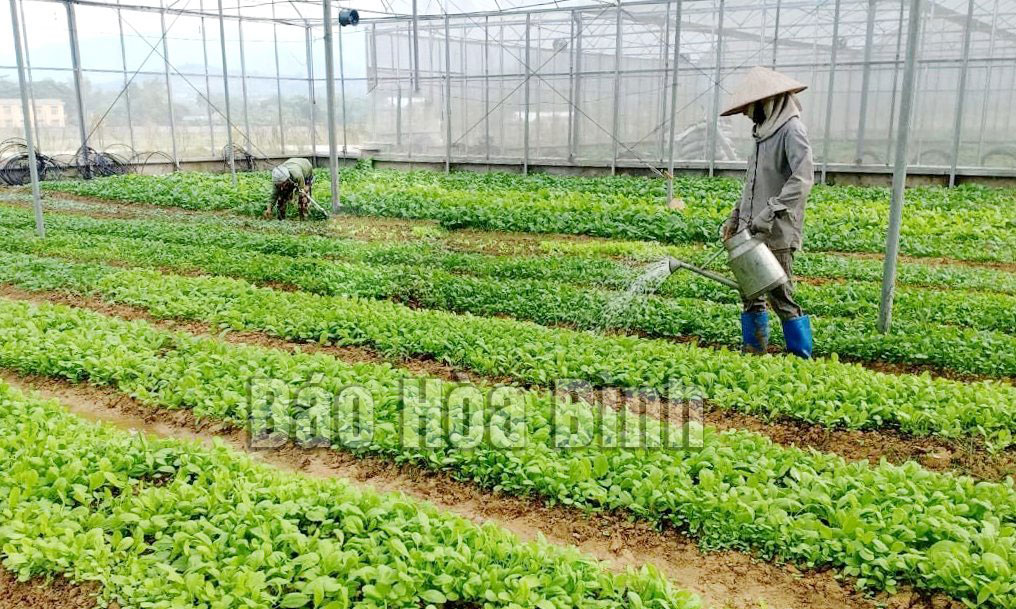(HBO) – In recent years, women in Luong Son district has embarked on producing clean and safe agricultural products, which is considered a sustainable livelihood that has helped change their mindset and bring into play their creativity to enrich themselves.
The
agriculture - forestry - irrigation cooperative in Tan Vinh commune has
developed a safe vegetable farming model in Dong Chui hamlet to turn arid areas
into vegetable fields, generating high economic benefits for its members.
Hoang Thi Bich Thuy, head of the Women’s Union
of Tan Vinh commune, said the safe vegetable production model of the Tan Vinh
agriculture - forestry - irrigation cooperative in Dong Chui hamlet is part of
the Vietnam Irrigated Agricultural Improvement Project, carried out on 1,500
sq.m. of farmland in Hoa Binh province. It has seen the participation of 30
member women.
To apply this model, member households have
received training in safe vegetable cultivation under VietGAP standards, taken
part in exhibitions, and been connected with sellers. The cooperative has
assisted them to ink contracts with two purchasers in Luong Son Industrial
Park, three in Hoa Binh city, and two in Hanoi.
Thanks to land reclamation efforts, vegetable
output has reached 600 - 800kg per week and about 40 tonnes per year,
generating nearly 500 million VND (21,800 USD) in income.
Women’s unions at all levels in Luong Son
district has opened many training courses on safe vegetable production while
coordinating with the farmers’ union to establish safe and organic vegetable
farming groups.
In the first half of 2021, women’s unions in
local communes organised three courses to transfer advanced techniques in
citrus tree cultivation and afforestation to 120 women.
Besides, the Luong Son Women’s Union has also
implemented Project 939 on assisting women to start a business and some other
tasks helping them to develop livelihoods./.



